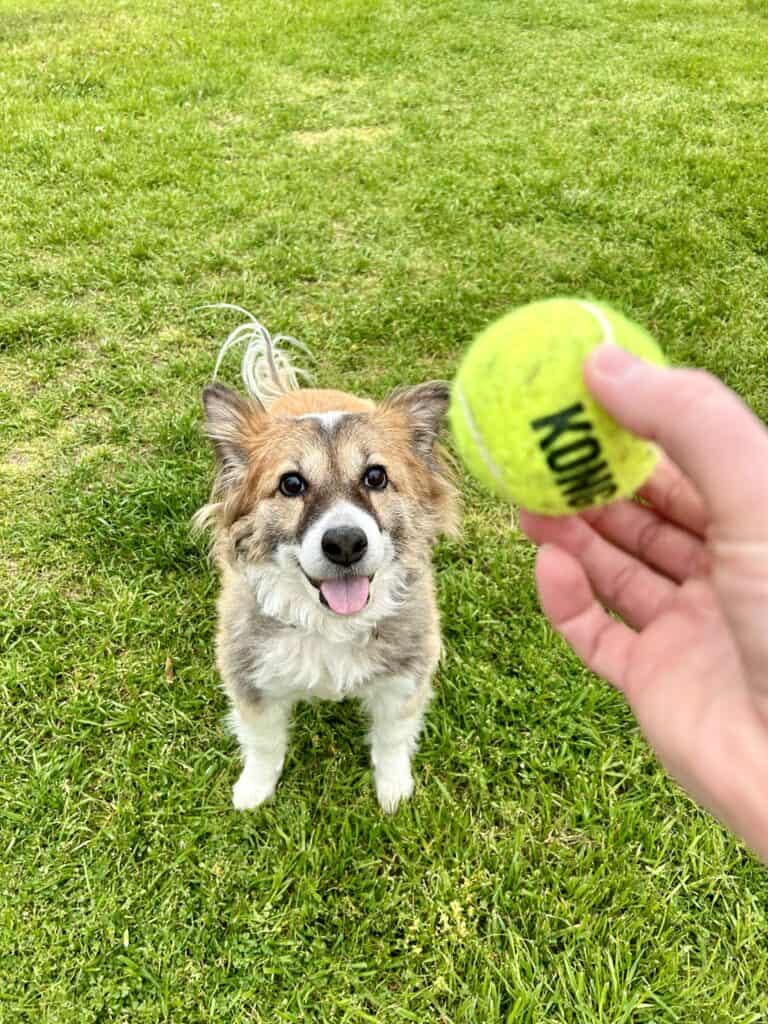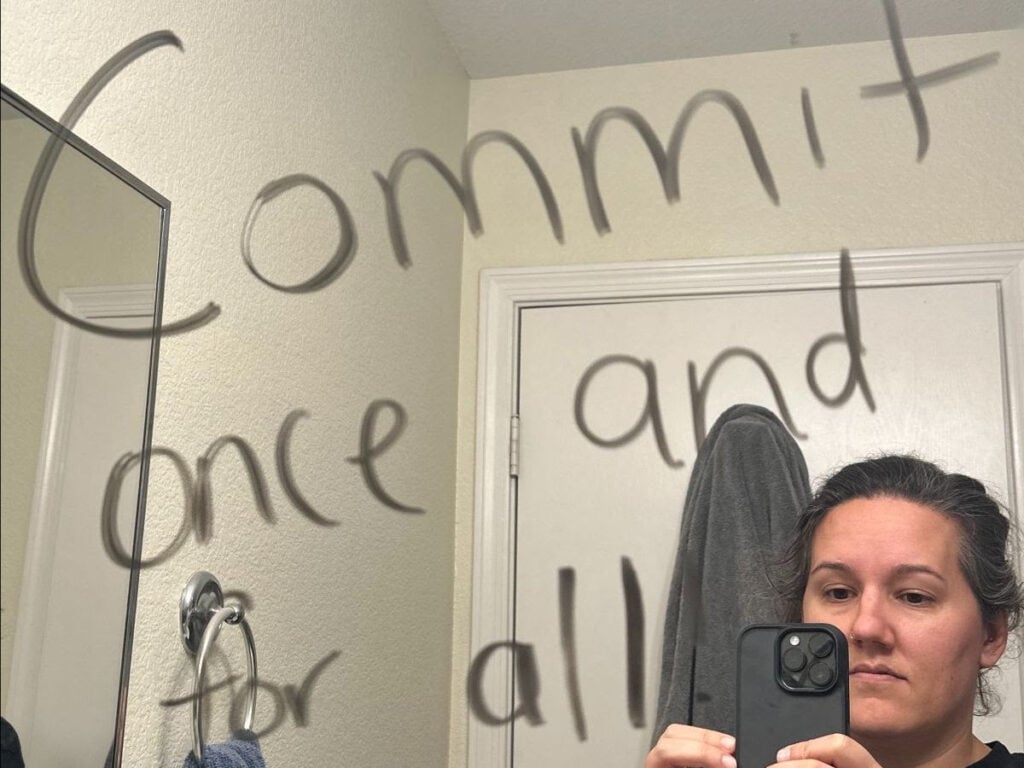You flee along with yourself

In 2006, Jackass star Steve-O was at the height of his career. At the red-carpet movie premiere for the second Jackass movie, he felt on top of the world. Or so one would have thought. But, as he recently shared, he felt like he was at his own funeral. He worried he and his team would never again produce something as good, that it would be downhill from there. On top of that, he was terrified his fame would disappear any moment. These worries spiraled into addictions, arrests, an intervention, and a 72-hour involuntary psychiatric hold after he emailed friends saying that he was, “ready to die.” Destructive behavior would consume him for the next 8 years.
It’s shocking, isn’t it? Here’s a guy who got everything he wanted, only to feel like he was at his own funeral.
But it’s also not shocking. It’s natural to think that money or fame or status will fix us. But, of course, it never does. External things can’t penetrate the mind; a mind prone to worry will worry regardless of circumstances.
Quoting Socrates, Seneca wrote, “All your bustle is useless . . . You must lay aside the burdens of the mind; until you do this, no place will satisfy you. . . .because you flee along with yourself.” If you want to escape anxiety, he continued, “what you’re needing is not to be in a different place but to be a different person . . . . You need a change of soul rather than a change of climate.”
This isn’t just Western philosophy. The Buddha also recognized our inclination to search for happiness outside of ourselves. As Karen Armstrong writes, the Buddha believed humans were unhappy because they were “ceaselessly yearning to become something else, go somewhere else, and acquire something they do not have. . . .”
The problem is that if we don’t maintain our perspective, the goalposts move. No matter where we go or how much we acquire, it eventually becomes normal. We end up in an endless cycle of needing more.
Soon after Henry Ford created his assembly line in 1913, a huge problem arose: employees kept quitting. They would simply walk out midshift. The work provided no cognitive stimulation or personal satisfaction or agency. In other words, it sucked. The attrition rate was so bad that when Ford needed to hire 100 employees, he had to hire 963. It was costing a fortune. He needed a way to cut costs and increase production. His solution: he would increase wages.
The results were incredible. Employee attrition plummeted; the pay was too good to leave. Ford called the wage increase, “one of the finest cost-cutting moves we ever made.” Then he sped up the conveyor belt. Production tripled. Employees were working harder and faster, anxious to keep their well-paying jobs and maintain their new lifestyles—lifestyles that had grown with their income, “keeping them,” as Jackson Lears said, “at routinized jobs in factories and offices, graying but in harness, meeting payments regularly.”
That image—graying in harness—reminds me of a short comic strip I saw years ago: a young guy sprinting after a flurry of money, eventually collecting a sizable amount, only to look up and see he’s now an old man.
It’s not that we lose sight of what’s important on purpose. It’s just that it’s so natural and easy to think we’re lacking something when we’re not. That’s why one of my favorite parts in Epicurus’s The Art of Happinessis when he talks about how little our nature requires. Nature doesn’t care if your house “does not gleam with silver and flash with gold and if there are no paneled and gilded ceilings re-echoing to the lute,” he said. Nature has everything it needs, content to “recline on the soft grass beneath the branches of a tall tree near a stream of water and joyously care for their bodily wants at no great expense.”
This, Epicurus says, proves that power and riches “in no way profit the body of a man.” He adds that they don’t profit the mind, either. It’s our imagination that makes us feel something is lacking when it isn’t. (Our imagination is what marketers—dubbed “consumption engineers” in the early twentieth century—play on.)
The Roman poet, Horace, who wrote much about contentment, said that the good life is found in having what is sufficient, and a steady mind. Reason and good sense banish anxiety, not vacations and luxury.
Besides, he continues:
“If neither Phrygian marble or the wearing of purple that surpasses the brightness of stars, cannot relieve the sick man … Why should I labor to build a hall with doorposts to attract envy? … Why should I exchange my [modest home] for riches that bring bigger burdens?”
His psychological message, Stephen Harrison writes, “is that great riches bring anxiety rather than escape from it.”
This is true for us just as it was true for Steve-O. It wasn’t until he went to work on himself that he turned his life around. It wasn’t until he stopped counting his bedpost notches, and started counting his days of celibacy, that he found happiness.
Rich is the person who adds bricks not to what can be blown down or taken away, but to their inner citadel—that reliable place of resilience, calm, virtue, and wisdom inside us all. The place we can flee to whenever we’d like, and come back better for it. The place that fortifies us as we fortify it.
Bolster that place and rest easy knowing that wherever you go, whatever you do, it will be right there with you.
Books read this month:
–The Wright Brothers by David McCullough was so good I added it to my list of favorite books. I loved how stoic the brothers were, how they went about their work diligently and without frenzy. How Wilbur whistled while he worked, refusing to rush preparations on his plane even as a large crowd and impatient reporters waited for him to fly. What I found especially beautiful was how loving and supportive their family was. Just a great book and McCullough’s smooth writing made the pages (I really didn’t mean to add a pun here) fly by.
–His Majesty’s Airship by S. C. Gwynne is another book I’d been wanting to read, and I thought it would be a good follow-up to The Wright Brothers. Imagine: a giant airship, about 6 acres in surface area, with a cloth-like exterior, full of people and helium, nearly impossible to steer, reactive to the tiniest shifts in weather, ready to explode at the slightest bump, moving slowly and at low altitude over the city. Why anyone thought these balloons would be the future of travel is beyond most historians, though the answers lie somewhere in ego, ignorance, good intentions, and a tragically flawed sense of competition.
-I loved David McCullough’s The Wright Brothers so much that I read another of his, John Adams, which I also quickly added to my list of favorite books. Wow, I didn’t know what a great guy Adams was, how strongly he opposed slavery and supported women’s rights. And unlike his peers, he actually practiced what he preached. He had an unflinching sense of duty, acted urgently, and was committed to his family. And through all of his professional and personal hardships, he did his best to move forward in good spirits.
-After reading and loving The Daily Thoreau last month, I decided to read Henry David Thoreau’s Where I Lived, and What I Lived For, and I LOVED it. It’s one of the best books I’ve read. Thoreau spent years living in a self-sufficient home in the New England woods and wrote about his experience. His goal was to live simply, and he encouraged his readers to do the same. One of my favorite stories is how he decorated his desk with 3 pieces of limestone, only to be horrified when he realized they required daily dusting. Throwing them out of his window in disgust, he wondered why he would dust his furniture “when the furniture of my mind was all undusted still. . . . I would rather sit in the open air, for no dust gathers on the grass, unless where man has broken ground.”


